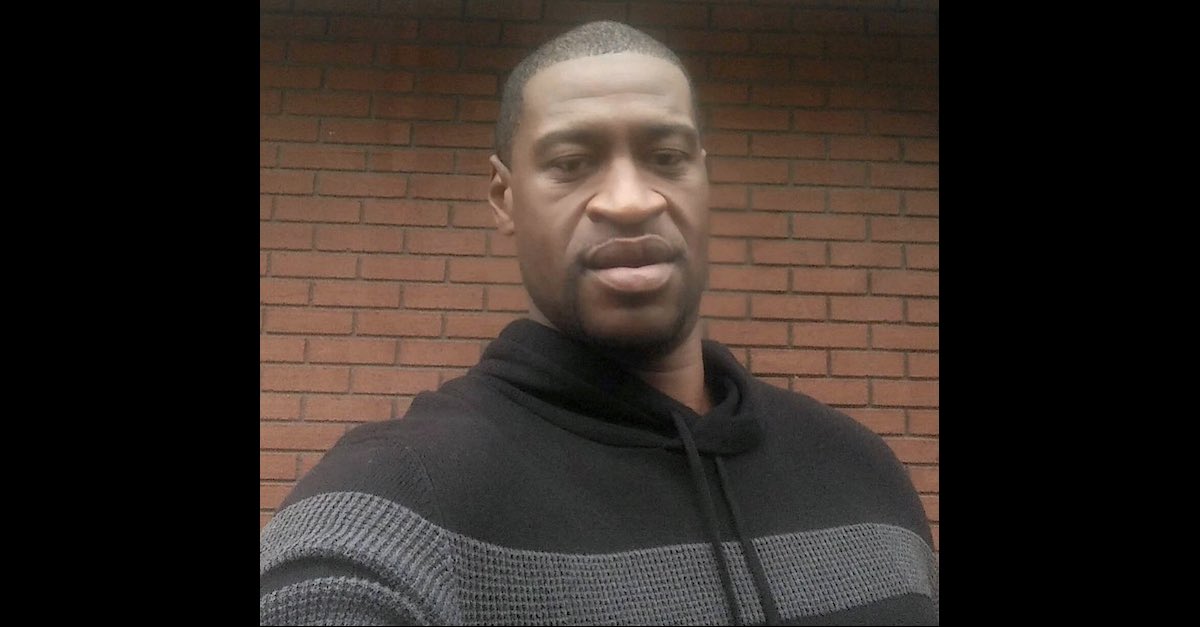
George Floyd
The State of Texas Board of Pardons and Paroles on Monday recommended that George Floyd be granted clemency for a 2004 drug conviction because the now-indicted officer who arrested him had a pattern of fabricating evidence. The ultimate decision to clear Floyd of the charge more than a year after his death now moves to the state’s Gov. Greg Abbott (R).
“The Members of the Texas Board of Pardons and Paroles have completed their consideration of your client’s application requesting a Full Pardon and have voted to recommend clemency,” the board wrote. “The case is being forwarded to the Governor for final disposition.”
The posthumous pardon application was submitted in April by Allison Mathis, an attorney with the Harris County Public Defender’s Office.
“Though pardons are, of course, rare and discretionary, and posthumous pardons all the more so, the instant case is one where truly, a pardon is merited,” Mathis wrote in the 250-word application. “A pardon would not give back the 10 months George Floyd spent in State Jail, away from his children and his mom. It wouldn’t erase the memory, personal or institutional, of this thing that happened to him, or the things that would happen to him later. In its own small way, though, this pardon would correct the record. It would show that the State of Texas is interested in fundamental fairness, in admitting its mistakes, and in working to increase the accountability for police officers who break our trust and their oaths, and harm our people rather than serve them.”
Prior to his murder at the hands of former Minneapolis police officer Derek Chauvin, Floyd was arrested in a February 2004 sting operation by former Houston police officer Gerald Goines. Floyd was charged with delivery of a controlled substance for allegedly possessing .03 grams of crack cocaine during his arrest. Goines alleged that the man gave the drugs to a “second suspect.” As told by the application, Goines’ account was that this second person cooperated with police and was going to be used as a confidential informant.
Floyd faced sentencing enhancements that would have labeled him a habitual offender and gotten him a possible punishment of at least 25 years in prison. Rather than risk that, he opted to plead guilty.
“Like many people forced through the twisted criminal justice system in the United States, Floyd confessed to save his life,” attorney Mathis wrote.
Years later, scrutiny surrounds Goines and he’s out of a job as a police officer. He allegedly lied about using two confidential informants to get drugs. From his false claim, Houston police got a no-knock warrant, leading to a catastrophic raid in which officers killed innocent homeowners Dennis Tuttle, 59, and Rhogena Nicholas, 58, as well as their pitbull. In addition, four officers were shot and a fifth was injured in the incident.
Goines, who was tasked with leading the raid, initially claimed that he witnessed an informant purchase heroin from the couple’s home in order to obtain the no-knock warrant. Goines later recanted, saying there was no such informant and that he had purchased the drugs himself from a different location.
He now faces two counts of felony murder. Police have said they did not find heroin at the home, only marijuana and “white powdery substance” that was either cocaine or fentanyl. The victims’ families have sued over the killings, calling into question the official narrative that a shootout began after Nicholas tried to grab an officer’s shotgun.
Mathis drew a parallel between the officer’s alleged M.O., and the way he arrested Floyd in the clemency application.
“Gerald Goines manufactured the existence of confidential informants to bolster his cases against innocent defendants, consistent with the unnamed, unidentified ‘second suspect’ he mentions in his offense report in his interaction with George Floyd,” she wrote.
Mathis and the office of Gov. Abbott did not immediately respond to a Law&Crime request for comment.
[image via Ben Crump]
Have a tip we should know? [email protected]